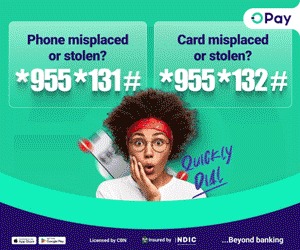The Central Bank of Nigeria (CBN) has unveiled a new online platform for the submission of microfinance bank (MFB) license applications.
According to an official press release seen by Nairametrics, the new platform known as CBN Licensing, Approval and Other Requests Portal (CBN LARP) would be replacing the current manual process which previous prospective applicants for MFB licenses have been physically submitting their applications to the CBN.
The apex bank also noted that it would extend the platform to other categories of license.
What this means
CBN further disclosed that the new LARP platform would help simplify the process by which Microfinance Banks get their licensing.
The apex bank also set a deadline for the implementation of this new platform.
Here’s an excerpt from the press release:
- The online application system offers numerous benefits, including a simplified process, time savings, enhanced communication, and robust security measures.
- By digitizing the application process, the Bank aims to improve accessibility, reduce paperwork, and expedite license approvals, benefiting both applicants and the economy.
- Consequently, with effect from September 25, 2023, MFB license applicants are required to submit both hardcopy and online applications (via the CBN LARP) as part of a parallel run.
- The cover letter submitting the hardcopy application must also note a valid application reference from the online submission to be accepted.
- The parallel run will end on December 31, 2023. Thereafter, manual submissions of hardcopy MFB licenser applications will no longer be required and accepted.
CBN also noted that it would continue to accept manual applications for all other licenser types until further notice.
In Case You Missed It
President Bola Tinubu recently nominated Dr. Olayemi Michael Cardoso to assume the role of Governor for the Central Bank of Nigeria (CBN).
This five-year appointment is subject to the endorsement of the Nigerian Senate, in compliance with Section 8 (1) of the Central Bank of Nigeria Act, 2007.






















